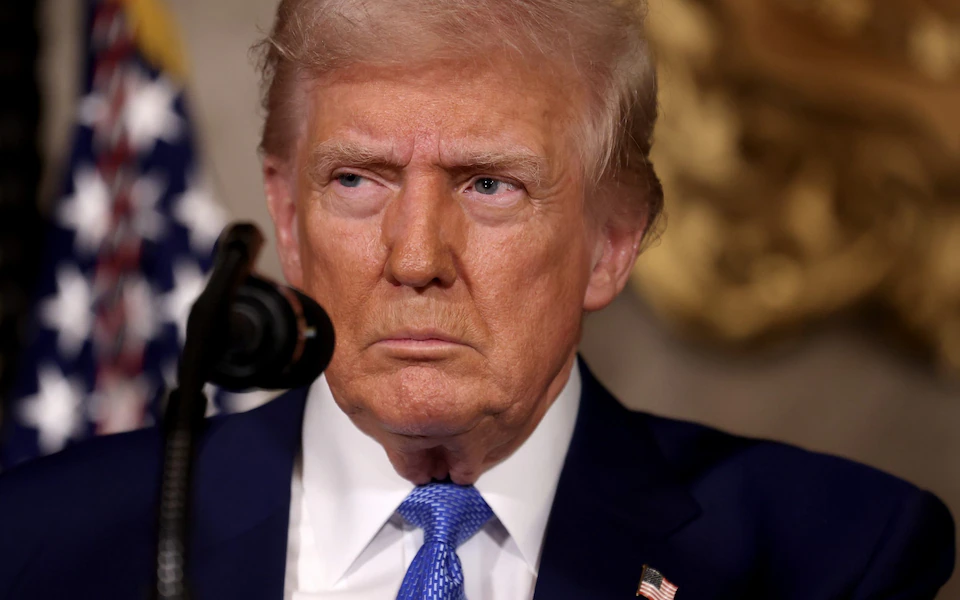Trump’s muscular displays of raw power against US allies could be bad for its material interests as well as its international standing

Trump’s “America First” doctrine shaped his foreign policy, emphasizing national sovereignty, economic self-interest, and a reduction in multilateral commitments. Unlike previous administrations that prioritized diplomatic engagement, Trump often adopted a more transactional approach, treating alliances as business arrangements rather than long-term strategic partnerships. His frequent criticisms of NATO, tariff wars with allied nations, and demands for increased financial contributions from partners exemplified this perspective. While Trump’s defenders argue that these tactics ensured fairer deals for the United States, critics contend that they alienated key allies and weakened American leadership.
One of the most tangible consequences of Trump’s aggressive stance toward US allies is the potential damage to economic partnerships. Trade relationships with allies such as the European Union, Canada, and Japan have historically provided substantial economic benefits to the US. However, Trump’s use of tariffs and threats of economic penalties strained these relationships.
For instance, his decision to impose tariffs on steel and aluminum imports in 2018 under the guise of national security led to retaliatory measures from the EU and Canada. This trade war not only increased costs for American manufacturers but also disrupted global supply chains. Similarly, Trump’s withdrawal from the Trans-Pacific Partnership (TPP) in 2017 diminished the US’s ability to influence trade dynamics in the Asia-Pacific region, ceding economic leadership to China.
By prioritizing short-term economic gains and disregarding the long-term benefits of stable trade relations, Trump’s confrontational approach risked harming American industries reliant on global markets. His policies also made it more challenging to negotiate favorable trade deals, as allies became wary of the unpredictability of US commitments.
Weakening Strategic Alliances
Trump’s displays of raw power also had the effect of undermining traditional strategic alliances. NATO, the cornerstone of transatlantic security, was frequently a target of his criticisms. His insistence that member states increase their defense spending, while a valid concern, was often conveyed in a manner that alienated rather than strengthened the alliance. Publicly questioning NATO’s relevance and suggesting that the US might not honor its collective defense commitments undermined trust in American leadership and emboldened adversaries like Russia.
Additionally, Trump’s withdrawal from the Iran nuclear deal (JCPOA) in 2018 over the objections of European allies strained transatlantic relations. The deal, which had been a product of extensive multilateral diplomacy, was designed to prevent Iran from developing nuclear weapons. By unilaterally abandoning it, Trump not only increased tensions in the Middle East but also signaled to allies that US commitments could be easily reversed, reducing incentives for future cooperation.
In the Asia-Pacific region, Trump’s unpredictable handling of security commitments also raised concerns. While he engaged in unprecedented diplomatic talks with North Korean leader Kim Jong-un, his approach lacked a coherent strategy, leaving South Korea and Japan uncertain about US intentions. His trade war with China, though intended to counter Beijing’s economic practices, also had collateral effects on US allies, forcing them to navigate the fallout of disrupted trade and security dynamics.
Diminishing America’s Global Influence
Beyond economic and strategic consequences, Trump’s muscular displays of power negatively affected America’s global reputation. US foreign policy has traditionally relied on a combination of military strength, economic influence, and diplomatic leadership. By prioritizing unilateral actions and disregarding the concerns of allies, Trump’s approach eroded the soft power that underpins US global influence.
Allied nations increasingly sought alternative partnerships, reducing dependence on the US. The EU, for example, deepened economic ties with China and Russia in response to Trump’s protectionist policies. Similarly, in the wake of Trump’s withdrawal from the Paris Climate Agreement, other nations moved forward with climate initiatives without US leadership, diminishing its role in global environmental policymaking.
Trump’s treatment of traditional allies also emboldened rivals. Russian President Vladimir Putin and Chinese President Xi Jinping capitalized on the perception of a fractured Western alliance, expanding their influence in regions where US leadership had waned. By fostering uncertainty about US commitments, Trump inadvertently created opportunities for adversaries to fill the diplomatic and economic void left behind.
The Long-Term Implications
The long-term consequences of Trump’s approach to foreign policy extend beyond his presidency. Rebuilding trust among allies requires sustained diplomatic efforts, and while the Biden administration attempted to mend alliances, lingering skepticism remains. The perception that US commitments can shift drastically with changes in administration makes it harder for allies to rely on American leadership, leading to increased regional self-reliance and alternative coalitions.
Additionally, Trump’s precedent of using economic and military power in a coercive rather than cooperative manner may influence future administrations, further entrenching a transactional approach to diplomacy. This could lead to a diminished role for the US in shaping international norms and institutions, reducing its ability to address global challenges effectively.
While Trump’s displays of raw power may have projected strength domestically, their impact on US allies raises serious concerns. Alienating economic partners, undermining strategic alliances, and diminishing America’s global influence have long-term consequences that could outweigh the short-term gains of a more aggressive posture. A foreign policy approach that balances strength with strategic cooperation remains essential for maintaining US leadership and safeguarding its material interests on the world stage. Future administrations must learn from these experiences to ensure that America’s alliances remain resilient, benefiting both national security and economic prosperity.


